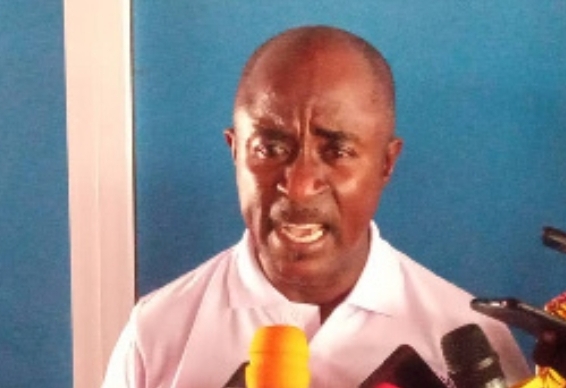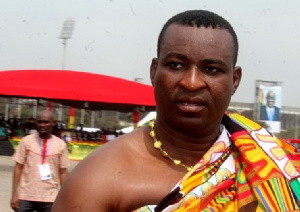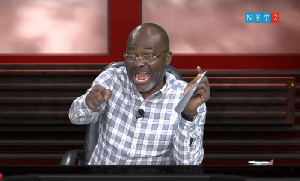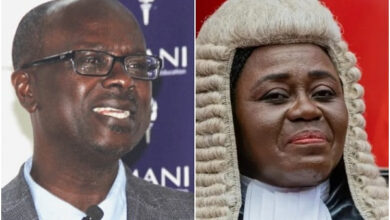Tsatsu Tsikata heads to Supreme Court again to seek review of Amewu’s ruling
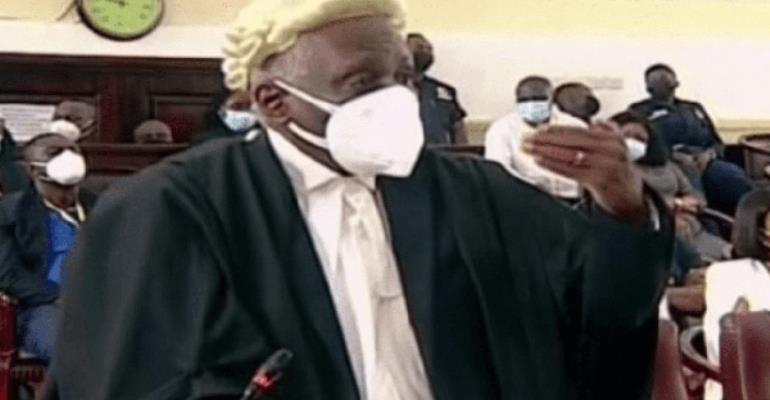
Lead counsel for Professor Margaret Kweku, the NDC’s parliamentary candidate for Hohoe in the 2020 elections and four other interested parties, lawyer Tsatsu Tsikata, will on Wednesday, 17th March 2021 argue for a review of the Supreme Court’s earlier ruling quashing an order by the Ho High Court.
On 5th January 2021, the Supreme Court quashed a ruling by the Ho High Court ordering John Peter Amewu from holding himself as the MP-elect for the Hohoe constituency following a suit filed by professor Margaret Kweku and four others arguing that the decision to disenfranchise the people of SALL is a human right violation.
But an application filed by the Attorney General at the Supreme Court led to the quashing of the orders of the Ho High Court made on 23rd December 2020.
The NDC in the Volta Region in a statement announced that “Tsatsu Tsikata, Lead Counsel for the Applicants, will be arguing the application for review on the basis of eighteen grounds of fundamental error of law set out in the application filed on 12th January 2021.”
The first ground for review (Ground a)) according to the NDC, the Supreme Court erred when it said the Right to Vote is not a fundamental human right but rather falls within the Directive Principles of State Policy.
They state that “According to the very first ground for review (Ground a)) filed by the Solicitor for the Applicants, Emile Atsu Agbakpe, the Supreme Court fundamentally erred when it referred to the right to vote as a provision falling within the Directive Principles of State Policy under the Constitution rather than being among the fundamental human rights. The Supreme Court is also said to have erred fundamentally in claiming that the High Court, Ho would have to determine whether the right to vote is a fundamental human right or not since this is something that has been settled by a long line of decisions of the Supreme Court which are binding on all courts, including the Supreme Court itself.”
Furthermore, the plaintiffs are of the view that the apex court fundamentally erred for invoking its supervisory discretionary power against the Ho High Court because the Ho High Court has jurisdiction to enforce human rights and did exactly that.
Counsel for the plaintiffs will also be arguing against the apex court’s ruling that “the action brought by Professor Margaret Kweku and others in the High Court, Ho, was really only against acts of the Electoral Commission and not about Mr Amewu.”
Other grounds for the review are that the Supreme Court has erred in its ruling leading to a miscarriage of justice and denying the applicants of their “constitutionally protected fundamental human rights by recourse to a provision in a statute.”
The plaintiffs took issues with the Supreme Court for allowing Justice Hoenyenugah to sit on the case when Counsel for plaintiffs raised an objection against his participation because of his “unbreakable bond” with Amewu leading to him “being a judge in his own cause”.
“The conclusion to the review application, therefore requests the Supreme Court in the interests of justice, to review its decision and allow the case in the High Court, Ho, for the enforcement of the fundamental human rights of the Interested Parties to “run its course. The Respondents therein, including Amewu and the Attorney-General, have every opportunity to present their case to that court.
“It is undoubtedly in the interests of justice that the Interested Parties are heard expeditiously in respect of their serious allegations of violations of their fundamental human rights”, the statement concludes.
BY: Richard Abayeta Abugre
Lead counsel for Professor Margaret Kweku, the NDC’s parliamentary candidate for Hohoe in the 2020 elections and four other interested parties, lawyer Tsatsu Tsikata, will on Wednesday, 17th March 2021 argue for a review of the Supreme Court’s earlier ruling quashing an order by the Ho High Court.
On 5th January 2021, the Supreme Court quashed a ruling by the Ho High Court ordering John Peter Amewu from holding himself as the MP-elect for the Hohoe constituency following a suit filed by professor Margaret Kweku and four others arguing that the decision to disenfranchise the people of SALL is a human right violation.
But an application filed by the Attorney General at the Supreme Court led to the quashing of the orders of the Ho High Court made on 23rd December 2020.
The NDC in the Volta Region in a statement announced that “Tsatsu Tsikata, Lead Counsel for the Applicants, will be arguing the application for review on the basis of eighteen grounds of fundamental error of law set out in the application filed on 12th January 2021.”
The first ground for review (Ground a)) according to the NDC, the Supreme Court erred when it said the Right to Vote is not a fundamental human right but rather falls within the Directive Principles of State Policy.
They state that “According to the very first ground for review (Ground a)) filed by the Solicitor for the Applicants, Emile Atsu Agbakpe, the Supreme Court fundamentally erred when it referred to the right to vote as a provision falling within the Directive Principles of State Policy under the Constitution rather than being among the fundamental human rights. The Supreme Court is also said to have erred fundamentally in claiming that the High Court, Ho would have to determine whether the right to vote is a fundamental human right or not since this is something that has been settled by a long line of decisions of the Supreme Court which are binding on all courts, including the Supreme Court itself.”
Furthermore, the plaintiffs are of the view that the apex court fundamentally erred for invoking its supervisory discretionary power against the Ho High Court because the Ho High Court has jurisdiction to enforce human rights and did exactly that.
Counsel for the plaintiffs will also be arguing against the apex court’s ruling that “the action brought by Professor Margaret Kweku and others in the High Court, Ho, was really only against acts of the Electoral Commission and not about Mr Amewu.”
Other grounds for the review are that the Supreme Court has erred in its ruling leading to a miscarriage of justice and denying the applicants of their “constitutionally protected fundamental human rights by recourse to a provision in a statute.”
The plaintiffs took issues with the Supreme Court for allowing Justice Hoenyenugah to sit on the case when Counsel for plaintiffs raised an objection against his participation because of his “unbreakable bond” with Amewu leading to him “being a judge in his own cause”.
“The conclusion to the review application, therefore requests the Supreme Court in the interests of justice, to review its decision and allow the case in the High Court, Ho, for the enforcement of the fundamental human rights of the Interested Parties to “run its course. The Respondents therein, including Amewu and the Attorney-General, have every opportunity to present their case to that court.
“It is undoubtedly in the interests of justice that the Interested Parties are heard expeditiously in respect of their serious allegations of violations of their fundamental human rights”, the statement concludes.
BY: Richard Abayeta Abugre


